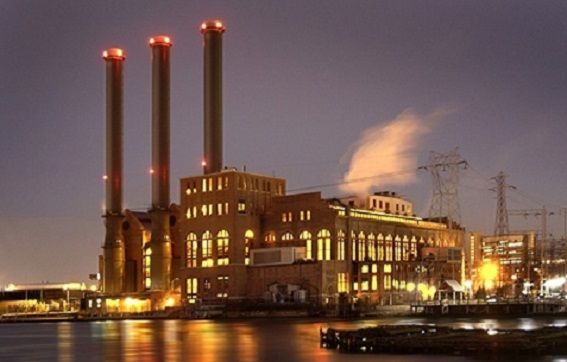
PROVIDENCE – The company that operates the Manchester Street Power Station in Providence was among three New England companies that have settled with the U.S. Environmental Protection Agency for failure to report its management of toxic chemicals.
The EPA alleged that Manchester Street LLC, a subsidiary of Connecticut-based Starwood Energy Group, failed to file toxic release inventory reports in a timely manner for ammonia at the power station on Point Street in 2018 and 2019. Following notification about the alleged violations, Manchester Street filed the required information and agreed to pay a settlement penalty of $11,707.
Companies and facilities are required to report annually on their use of certain chemicals and substances under the federal Emergency Planning and Community Right-to-Know Act. Reports are filed in EPCRA’s toxic release inventory database, which is available to the public.
Two other New England companies that also settled EPA violations were CertainTeed LLC in Norwood, Mass., and Clean Harbors of Connecticut Inc., of Bristol, Conn.
Under federal TRI regulations, companies that use certain listed chemicals must report their chemical releases each year to EPA.
This information serves as the basis for the toxic release inventory, which is a collection of data that can be readily reviewed by communities, government, and industry. TRI reporting informs surrounding communities about a facility’s toxic chemicals that could potentially harm public health and the environment.












